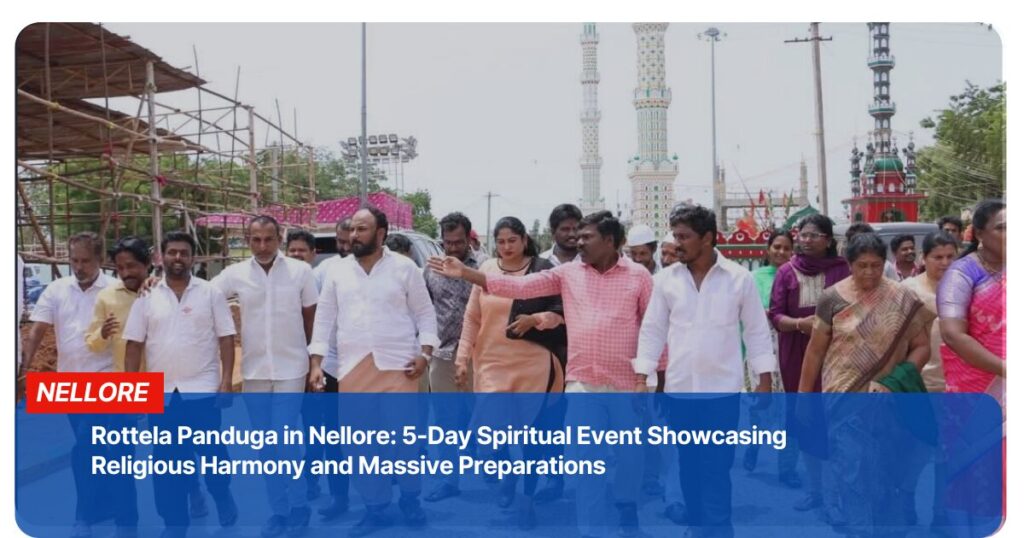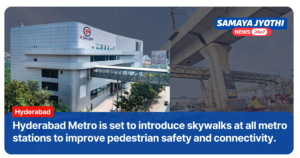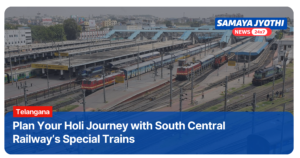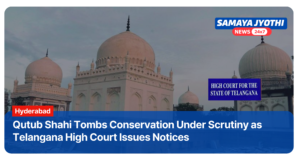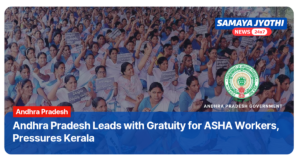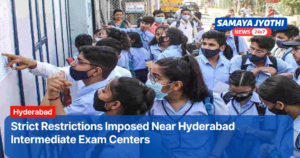- Home
- Andhra Pradesh
- Rottela Panduga: Essential Symbol of Religious Harmony in Nellore – 5-Day Celebration Draws Thousands
Rottela Panduga in Nellore: 5-Day Spiritual Event Showcasing Religious Harmony and Massive Preparations
Rottela Panduga is a celebrated symbol of religious harmony in Nellore district, Andhra Pradesh, known for uniting people across faiths, castes, and regions. Every year, this spiritual gathering at the historic Barashaheed Dargah draws thousands of devotees from across India and even overseas. The festival’s hallmark is the exchange of rotis (flatbreads) as an act of solemn vow and fulfillment of wishes, a tradition said to date back centuries. This year’s Rottela Panduga will be a five-day spectacle, commencing on July 6 and concluding on July 10, with elaborate preparations underway to ensure a smooth experience for all visitors.
Janasena Nellore city president Duggishetty Sujay Babu inspected the arrangements alongside party activists on Sunday. He emphasized the cultural and spiritual importance of the event while reassuring the public that no stone would be left unturned to provide necessary facilities. According to Sujay Babu, meticulous planning is crucial due to the sheer number of devotees expected, with estimates often running into tens of thousands during peak days. He described the festival as a beacon of communal amity, transcending boundaries of caste, creed, and religion.
The Dargah’s spiritual legacy is legendary in Nellore, with people from diverse backgrounds gathering to participate in prayers, seek blessings, and honor the Sufi saints who rest there. The atmosphere transforms into one of spiritual fervor, camaraderie, and shared devotion, exemplifying India’s deep-rooted tradition of syncretism. Beyond its religious significance, the festival also serves as a vital cultural and tourism draw for the district, showcasing local heritage to the wider world.
The city administration and local leadership are keenly aware of the importance of Rottela Panduga not just as a religious event but as a socio-economic driver for Nellore. Every year, small businesses, vendors, transport services, and hotels benefit from the surge in visitors, creating a festive economic boost. This year, given the heightened anticipation around the five-day celebration, planning committees have redoubled their efforts to ensure seamless coordination among civic departments, law enforcement, sanitation teams, and medical services.
Janasena leaders, including Kovur constituency in-charge Chappidi Srinivasulu Reddy and regional coordinators like Kola Vijayalakshmi and Nagarathnam, have been active in reviewing plans and mobilizing local volunteers. Their message is clear: the event’s success depends on collective effort and community spirit. They have called on citizens to cooperate with authorities, maintain cleanliness, and extend hospitality to visitors from distant regions.
The Nellore district administration has also engaged with state government departments. Ministers such as Ponguru Narayana, Anam Ramanarayana Reddy, Nellore MP Vemireddy Prabhakar Reddy, and Nellore Rural MLA Kotamreddy Sridhar Reddy have held discussions to ensure all arrangements are finalized well before the festival begins. Janasena Party members see the event as an opportunity to demonstrate their commitment to public service and efficient governance. Their involvement in the planning process has earned praise from community leaders who appreciate their proactive approach and emphasis on religious harmony.
The preparations encompass a wide range of logistical needs, from ensuring drinking water availability to managing traffic flow, sanitation facilities, and crowd control.
Special attention is being given to medical preparedness in light of the massive crowds anticipated. Temporary medical camps are being set up in proximity to the Dargah premises, with trained staff ready to handle emergencies. Ambulances and first-aid units will be strategically positioned to ensure rapid response to any health-related incidents. The district health department is also coordinating with private hospitals to ensure overflow capacity if required.
Cleanliness is another top priority. Civic authorities are deploying extra sanitation workers, arranging for additional dustbins, and planning regular waste removal cycles during the festival days. Volunteers from Janasena Party and local NGOs will assist in sensitizing the public about maintaining hygiene. The Nellore Municipal Corporation has issued guidelines to street vendors regarding waste disposal to minimize littering around the sacred site.
Security arrangements are being closely coordinated with law enforcement agencies. Police will deploy both uniformed and plainclothes officers to monitor crowd movements and prevent any untoward incidents. Surveillance cameras are being installed at strategic locations to aid in real-time monitoring. Officials have requested public cooperation and vigilance to ensure the event remains peaceful and safe.
Janasena city general secretary Shanivarapu Ajay Babu, division in-charges such as Pedada Ananda Rao and Chitturu Ramu, along with other leaders like Chukkala Bhimayya, Billa Udayakiran, and Srimanthula Kishore, have been instrumental in reviewing these arrangements. Their collective goal is to make this year’s Rottela Panduga a benchmark for well-organized spiritual festivals in Andhra Pradesh.
Another noteworthy aspect of the Rottela Panduga is the inclusive participation of political leaders from different parties, underscoring the non-partisan nature of the event. While Janasena Party is playing a major role in coordinating preparations this year, leaders from ruling and opposition parties alike have extended their support to the festival’s smooth conduct. This rare show of political unity is seen as a reflection of the Dargah’s unifying spiritual appeal that transcends political differences.
Janasena city president Sujay Babu also highlighted the spiritual dimension of their involvement. He mentioned that for the past five years, party members have been offering special prayers during the Rottela Panduga for Pawan Kalyan to attain power. With Pawan Kalyan now serving as Deputy Chief Minister of Andhra Pradesh, Janasena supporters see the upcoming festival as a moment of gratitude and fulfillment of their vows.
An invitation has already been extended to Janasena chief and Deputy Chief Minister Konidela Pawan Kalyan to attend the Rottela Panduga. While his visit is not yet officially confirmed, there is considerable excitement among devotees and party activists about the possibility. Such a visit would not only reinforce the festival’s prominence but also symbolize the government’s commitment to preserving cultural traditions and supporting religious tourism in Nellore district.
State Tourism Minister Kandula Durgesh has issued instructions to ensure that devotees face no inconvenience, underlining the government’s prioritization of smooth transport access, accommodation options, and overall visitor experience.
Barashaheed Dargah itself is a landmark of Nellore’s cultural and religious history. It is revered for its spiritual aura and the tradition of fulfilling vows through the symbolic exchange of rotis. Pilgrims come with deep faith, often traveling great distances to participate in the ritual and express their gratitude for answered prayers. The Rottela Panduga is thus more than a festival; it is a living testament to the region’s spiritual heritage and the enduring power of shared belief.
Historians trace the origins of the festival back centuries, rooted in Sufi traditions that emphasize universal brotherhood, compassion, and service. Over generations, these values have become deeply woven into the social fabric of Nellore, making the Dargah a place where religious boundaries dissolve in favor of shared devotion. The Rottela Panduga’s ritual of exchanging rotis symbolizes this interconnectedness and mutual support, where devotees pass on their fulfilled vows so others may find their prayers answered in turn.
The festival also features special prayers, qawwalis, and cultural programs that add to its vibrant atmosphere. Local artisans and vendors set up stalls selling devotional items, snacks, and handicrafts, creating a bustling fairground around the spiritual core. Families visit together, making it a multi-generational tradition that sustains community bonds. For many in Nellore district, participating in the Rottela Panduga is both a personal spiritual journey and a collective celebration of heritage.
As the festival draws near, local leaders have stressed the importance of clear communication with the public about schedules, facilities, and guidelines. Pamphlets and posters are being distributed across the district, while local media outlets broadcast regular updates. Janasena activists are using social media to share information and encourage participation while urging visitors to respect the sanctity of the site.
The involvement of various government departments is critical in managing such a large-scale event. The district collector’s office, municipal corporation, police department, health services, and tourism board are all working in concert to finalize operational plans. This integrated approach aims to avoid bottlenecks, ensure quick response to issues, and deliver a memorable experience for pilgrims.
Local transport services are also being ramped up. Special buses will run from nearby towns and villages to the Dargah site during the festival period, while private operators have been asked to avoid overcharging passengers. Traffic police have devised plans for managing vehicle flow, providing clear signage, and setting up designated parking areas to reduce congestion around the Dargah.
Community involvement is at the heart of these efforts. Religious leaders, social organizations, youth clubs, and NGOs are all contributing to awareness campaigns, volunteer drives, and service initiatives. This sense of shared responsibility is a hallmark of the Rottela Panduga spirit, reflecting its power to unite diverse groups in pursuit of a common purpose.
Among the highlights of the Rottela Panduga is the spiritual counseling offered by the Dargah’s caretakers and visiting Sufi scholars. These sessions address personal and family issues, offering guidance rooted in compassion and tradition. Many devotees describe these interactions as transformative, providing clarity and comfort during difficult times. The festival’s reputation as a place of spiritual healing is one reason it draws pilgrims from far beyond Nellore district.
Cultural performances also form an integral part of the celebration. Qawwali troupes from various regions are invited to perform, filling the air with devotional music that resonates with audiences of all ages. These performances are not merely entertainment; they are acts of worship and community storytelling, preserving a centuries-old musical heritage while inspiring collective devotion.
Local officials have encouraged such cultural programming as a way to showcase Nellore’s rich traditions to visiting pilgrims and tourists. Artisans and vendors are also being supported through designated stalls, ensuring they have the opportunity to earn income during the festival. Food safety and hygiene guidelines have been issued to all vendors to maintain standards and protect public health.
For many families, Rottela Panduga represents an annual pilgrimage that strengthens bonds across generations. Grandparents share stories of past festivals, parents teach children about the traditions, and youngsters find new ways to participate, ensuring that this living heritage remains vibrant and relevant for future generations.
The festival’s role in promoting tourism is being actively highlighted by the Andhra Pradesh government. Tourism Minister Kandula Durgesh has called for all arrangements to be completed in a manner that enhances the visitor experience, making them ambassadors for Nellore’s culture when they return home. To this end, tourism officials are coordinating with local hotels, transport providers, and guides to ensure quality service and fair pricing.
Accommodation is a key focus area, with special attention being paid to affordable lodging options for pilgrims of varying means. Local schools and community halls are being prepared as temporary shelters, while private lodges have been asked to reserve rooms for festival attendees. Public amenities such as drinking water stations, mobile toilets, and rest areas are also being expanded around the Dargah precincts.
The festival’s economic impact is substantial, providing seasonal employment for hundreds of locals and boosting sales for small businesses. From flower sellers and artisans to transport operators and food vendors, many families rely on the festival season for vital income. This economic dimension underscores the need for robust planning, as a well-managed festival can deliver lasting benefits to the district.
Authorities are also mindful of environmental concerns. Efforts are being made to minimize single-use plastics, promote recycling, and ensure proper waste disposal. Environmental volunteers are being trained to support these goals, reflecting a broader commitment to sustainable tourism that respects both cultural heritage and ecological balance.
Click for more latest news. Also get top headlines and latest news from India and around the world at samaya jyothi



